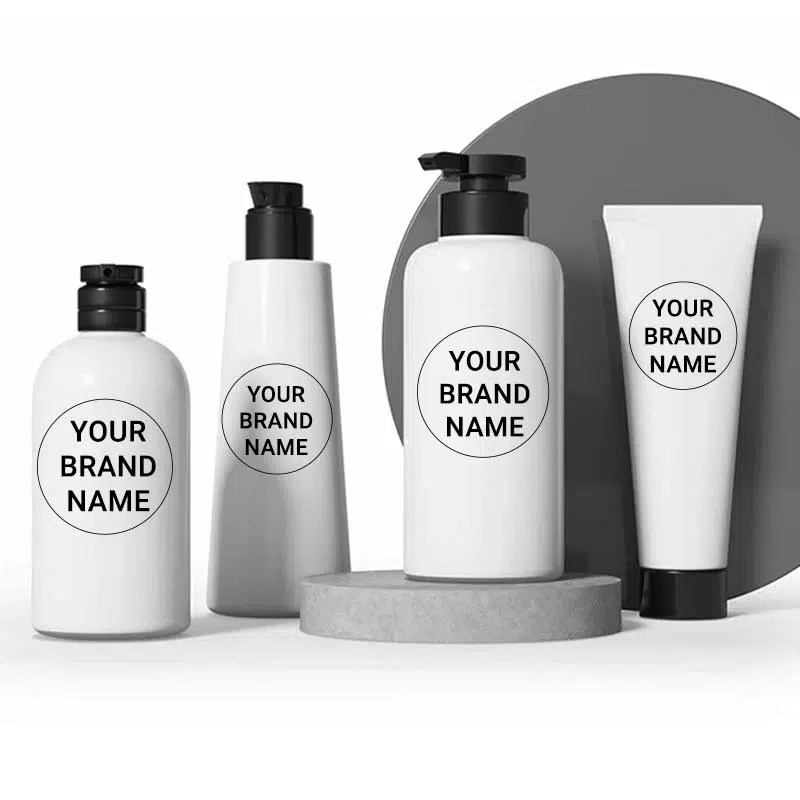
The cosmetics industry is a highly dynamic and competitive sector where innovation, quality, and speed to market are paramount. Cosmetic companies increasingly turn to third-party manufacturing as a strategic solution to thrive in this fast-paced environment. Third-party manufacturing involves outsourcing the production of cosmetics to specialized manufacturers, allowing companies to reap a host of advantages that contribute to their growth and success. This blog aims to explore the numerous benefits offered by third-party manufacturing. From cost efficiency and specialized expertise to scalability, flexibility, and regulatory compliance, this manufacturing approach has proven to be a game-changer for businesses seeking to optimize their operations and deliver exceptional products to their customers. By understanding the advantages of third-party manufacturing, cosmetic companies can make informed decisions about their manufacturing strategies and acquire a competitive edge in the market. Let’s first understand what private label manufacturing of cosmetics & personal care is.
What Is Private-Label Manufacturing?
In the cosmetics and personal care industry, private label manufacturing has emerged as a popular and effective business model for companies looking to expand their product offerings, establish their brand presence, and meet the growing demands of consumers. Private label manufacturing involves partnering with a manufacturer specializing in producing cosmetics and personal care products under another company’s brand name. This mutually beneficial arrangement provides a range of benefits for both parties involved. In private label manufacturing, also known as white label manufacturing or contract manufacturing, cosmetics, and personal care products are manufactured by a specialized manufacturer. In this arrangement, the manufacturer utilizes its expertise, infrastructure, and resources to produce products according to the specifications, branding, and packaging requirements of the company that owns the brand. The process begins with the brand owner selecting a suitable private label manufacturer based on their capabilities, quality standards, and compatibility with the brand’s vision. Once the partnership is established, the brand owner works closely with the manufacturer to determine product formulations, packaging design, labeling, and any other customization required to align
the product with the brand identity. The manufacturer then takes on the responsibility of sourcing raw materials, manufacturing the products, conducting quality control, and assisting with regulatory compliance. So, let’s delve into the exciting world of private-label manufacturing and explore how it transforms the cosmetics industry.
Cost Efficiency

One of the primary advantages of third-party manufacturing in the cosmetics industry is its cost efficiency. Establishing and maintaining a fully equipped manufacturing facility can be capital-intensive, requiring substantial machinery, technology, and personnel investments. Companies can eliminate or significantly reduce these overhead costs by outsourcing production to a third-party manufacturer. They can channel their resources toward other critical aspects of their business, such as research and development, marketing, and distribution. This cost-effective approach enables cosmetic companies to maximize profitability and maintain a competitive edge.
Specialized Expertise

Third-party manufacturers in the cosmetics industry are specialized entities with extensive knowledge and experience in manufacturing various cosmetic products. They deeply understand formulation techniques, regulatory compliance, and quality control processes. By collaborating with these expert manufacturers, cosmetic companies gain access to cutting-edge technologies, innovative formulations, and industry best practices. This partnership allows businesses to enhance the quality and performance of their products, catering to the evolving demands of the market. The specialized expertise offered by third-party manufacturers is invaluable in achieving product differentiation and delivering superior cosmetic solutions to customers.
Speed to Market

In an industry driven by innovation and trends, speed to market is crucial for success. By partnering with third-party manufacturers, cosmetic companies can significantly reduce their product development and launch timelines. These manufacturers have established processes, regulatory expertise, and dedicated resources that streamline manufacturing. In this way, businesses are able to bring their products to market more quickly due to shorter lead times. Speed to market enhances a company’s competitive advantage and enables them to seize market opportunities and capitalize on emerging trends before competitors.
Regulatory Compliance

Regulatory compliance is a critical aspect of the cosmetics industry, with strict guidelines governing product safety, labeling, and ingredient transparency. Keeping up with evolving regulations can be daunting for companies, especially smaller ones. Third-party manufacturers specialize in regulatory compliance, ensuring all products meet legal requirements. They stay updated with the latest regulations, maintain the necessary certifications, and conduct thorough testing to ensure product safety and efficacy. By leveraging the expertise of third-party manufacturers in this area, cosmetic companies can confidently navigate the complex regulatory landscape, avoiding potential penalties or product recalls.
Risk Mitigation

Outsourcing manufacturing to third-party providers can help mitigate various cosmetic industry risks. Manufacturers assume responsibility for quality control, production efficiency, and adherence to regulatory standards. Taking on this risk allows cosmetic companies to focus on their core competencies, such as marketing, branding, and customer engagement. By entrusting manufacturing to reliable partners, businesses reduce the risk of operational disruptions, product quality issues, and supply chain bottlenecks. This risk mitigation strategy ensures business continuity and minimizes the impact of unforeseen challenges, ultimately safeguarding a company’s reputation and profitability.
Conclusion
In conclusion, third-party manufacturing in the cosmetics industry offers numerous advantages that contribute to the growth and success of cosmetic companies. By outsourcing production to specialized manufacturers, companies can benefit from cost efficiency, specialized expertise, scalability, flexibility, speed to market, regulatory compliance, and risk mitigation. Third-party manufacturing provides cost efficiency by eliminating or reducing the overhead costs associated with establishing and maintaining a manufacturing facility. This allows cosmetic companies to allocate resources to other critical business areas and maximize profitability. Third-party manufacturers bring specialized expertise in cosmetic manufacturing, including formulation techniques, quality control processes, and regulatory compliance. Companies can enhance the quality and performance of their products when they collaborate with these expert manufacturers. In summary, third-party manufacturing in the cosmetics industry provides cost efficiency, specialized expertise, scalability, flexibility, speed to market, regulatory compliance, and risk mitigation. By understanding these advantages, cosmetic companies can make informed decisions about their manufacturing strategies and gain a competitive edge in the market.
FAQs
1. What types of cosmetic products can be manufactured through third-party manufacturing?
Third-party manufacturers in the cosmetics industry have the expertise and capabilities to produce a wide range of products, including but not limited to skincare items, makeup products, hair care products, bath and body products, fragrances, and personal care items. Based on the brand’s specifications, they can accommodate various formulations, textures, and packaging requirements.
2. How does third-party manufacturing benefit small and emerging cosmetic companies?
Third-party manufacturing offers significant benefits to small and emerging cosmetic companies. These companies often need more resources and may find establishing their manufacturing facilities challenging. Outsourcing production to a third-party manufacturer allows them to access high-quality manufacturing capabilities, specialized expertise, and cost efficiencies without requiring substantial capital investments. This enables small and emerging companies to focus on branding, marketing, and product development, accelerating their growth and
market penetration.
3. Can third-party manufacturers ensure product quality and safety?
Yes, reputable third-party manufacturers prioritize product quality and safety. They adhere to stringent quality control processes, follow industry best practices, and comply with regulatory standards. These manufacturers invest in state-of-the-art equipment, employ skilled personnel, and conduct rigorous testing at different stages of the production process to ensure product efficacy, consistency, and safety. Moreover, they stay updated with the latest regulatory changes and employ the necessary measures to meet compliance requirements. Partnering
with a reliable third-party manufacturer allows cosmetic companies to deliver high-quality products to their customers, fostering trust and loyalty.

